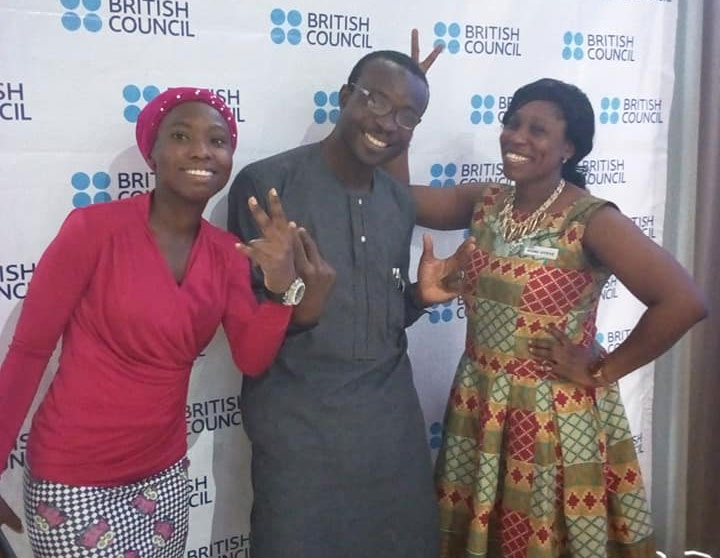Nonprofessionals ruining Nigeria’s media space — Elizabeth Osayande
Elizabeth Osayande is a proud journalist. She exhibit that pride professionally and in words. While many media practitioners strayed into the profession or took it up as the last resort in the search for job, for Elizabeth it’s the only job she ever wanted.
She has a burning passion for development/solutions journalism, and is an activist. Above all “I love God and I am a proud wife and mother.” She spoke to Tech Climate & Health about the job and the global journalism training her foundation, Female Freelancers Federation, FFF, organised.
What challenges do journalists face in Nigeria?
There are several challenges. Poor, or lack of, remuneration is one. Welfare packages are non-existent. This is why in other climes a journalist will make a source comfortable so she can get what she wants. But here, it’s the “clients” that make journalists comfortable so they can get whatever they want published.
Again, many journalists do not have mentors. This is a huge setback. Most times, Nigerian journalists operate in a hostile working environment.
The very insidious one is what non-professionals or untrained media practitioners are doing to the sector. It will either lead to a drastic re-engineering of the sector or bring it down.
Organisations also have a penchant of employing non-professionals to head their communications or public relations unit. It’s crazy.
All these make the journalist’s job difficult in Nigeria.
Are these challenges worse for a freelancer?
Yes. Far worse. First, these people do not have a salary. Hence, no pension or entitlement whatsoever.
There are also no formal terms of engagement between them and their affiliates. So they bear more of the brunt of the decay in the media industry.
Are freelancers appreciated in the media space?
No. Not in our clime. There is no official recognition for freelance journalists. No terms and conditions for their services.
This is even though these people most times work more than the staff of media houses.
Are they even vital to the Nigerian media industry?
Yes and yes. Check and you will find that most super-investigative award-winning pieces are done by freelancers, especially those not affiliated with any media house which you may want to call stringers.
Freelancers have the luxury not to be influenced by this slogan “He who pays the piper dictates the tune”.
My point is, freelancers, especially the females, are crucial in the Nigerian media space. They do much more.
Are these part of the reason FFF organised a training for freelancers?
Yes. I feel that the topic (Becoming a global journalist) is apt now considering the innovation brought by technology, and the uncertainty brought about by fake news and yellow journalism.
The world, and indeed Nigeria, will appreciate a media personality that is current, tenacious and, to some extent, objective in the discharge of his or her dealings.
So, I believe discussing the training was necessary for participants to get the relevant tools, skills and experience to become global journalists.

Where do you see FFF in 5 years?
Wow. This is a great question. First is to see the Female Freelancers Federation being a globally-recognised body that accommodates all gender of freelancers.
There have been several calls to include the male in our network. However, we are working towards that.
We also desire to have a platform; like a website where stories by members who may not be published in their affiliated media due to some bureaucracy, get featured on our site, provided such stories meet all the elements of news gathering and writing.
How did the training go?
It went very well. However, it was not just a one-off training.
Female Freelancers Federation, FFF, is a network of like-minded professionals, especially female journalists, where resources are shared, collaborations and networks are made, and fora organised to share experiences as freelancers.
FFF, which started in March, hosts a monthly webinar for participants facilitated by seasoned-veteran journalists that discuss topical issues in the journalism profession.
For the month of March, we organised a media expose tagged: “Tips on Investment as a Freelance Journalist”, facilitated by journalist and Media Career Development Specialist, Mr. Lekan Otofudurin.
The reason for picking the topic is the challenges face by freelance journalists affiliated to media houses. Not only are they not on the payroll, their claims are not paid as and when due.
This brings the question of investment plans for such journalists. The training expanded the knowledge of participants on ways to start investment irrespective of one’s status.
The April edition of the monthly media expose had media mentor, Ms. Joke Kujenya, speaking on “Becoming a global journalist”.
The topic addressed the importance for journalists to be dynamic and abreast of global happenings.

